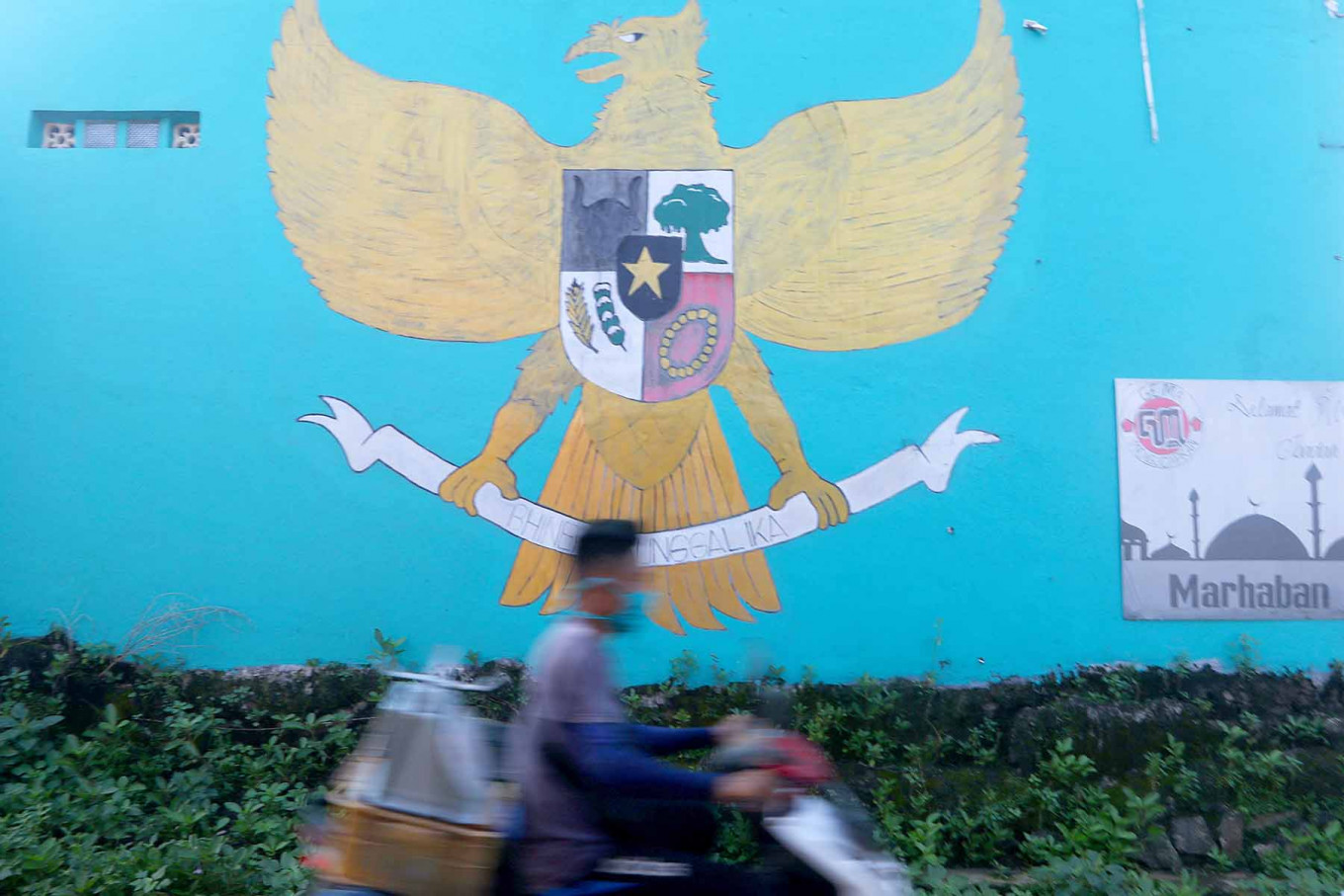Popular Reads
Top Results
Can't find what you're looking for?
View all search resultsPopular Reads
Top Results
Can't find what you're looking for?
View all search resultsAn insightful synthesis on strengthening Pancasila
A discourse on Pancasila may represent discussions of the deepest or the most substantive aspects of a nation, which is significantly important for all Indonesian citizens, who are the adherents of said ideology. In regard to its significant values, the debate over the bill on the Pancasila Ideology Guidelines (HIP) has become a sensitive, complex and fierce topic as the issues touch one of most fundamental aspects of the nation.
Change text size
Gift Premium Articles
to Anyone
I
deology is the representation of a nation’s genuine identity. It affirms the nation’s existence and protects it from the influence and encroachment of other ideologies.
Ideology should also lay a foundation for a nation’s independence. Furthermore, it provides the nation with a guide and reference to develop and manage itself amidst international dynamics.
Indonesia has chosen Pancasila as its national ideology, believing it as the embodiment of spiritual, theological, sufistic and cultural values. That is to say that Indonesia has consciously and confidently accepted and established Pancasila as its national identity, henceforth manifested as the state philosophy.
A discourse on Pancasila may represent discussions of the deepest or the most substantive aspects of a nation, which is significantly important for all Indonesian citizens, who are the adherents of said ideology. In regard to its significant values, the debate over the bill on the Pancasila Ideology Guidelines (HIP) has become a sensitive, complex and fierce topic as the issues touch one of most fundamental aspects of the nation.
Unfortunately, the bill caused friction between certain groups and parties, who tended to weaken or at least obscure what is already clear about Pancasila.
The rise of the term "ketuhanan yang berkebudayaan” (culture-embedded divinity) and the absence of the nation’s affirmation of the prohibition of ideologies such as communism and Leninism in the bill is considered a setback for, if not contradictory to, the intention to strengthen the Pancasila ideology.
This suspicion may appear unreasonable or exaggerating. In fact, however, the discourse of the bill has triggered chaotic and heated debates. The situation has become so counterproductive that discussions on the issue were finally put to a halt with the House of Representatives’ decision to withdraw the draft law from the National Legislation Program.
From the aspect of necessity, it is important to underline that stopping the debate of the bill does not mean that the need for strengthening the state ideology has been fulfilled. It would be naïve, too, for one to think that the end of debate over the bill has saved Pancasila from all forms of threat.
We should be thankful that although the bill has stirred controversy, suspicion, conflict, slander and debate, there are people who remain committed to continuing the agenda of strengthening the Pancasila ideology. They truly realize the important role of Pancasila for the nation at this trying time.
The formulation of the bill on the Agency for Pancasila Ideology Education (BPIP), which replaces the HIP bill, implies a shared strong spirit and commitment to strengthening, fostering and promoting the Pancasila ideology. It has given fresh air to the nation’s quest for strengthening Pancasila.
The new bill has at least accommodated the wishes of many who have tirelessly sought ways to protect Pancasila without having to slip into prolonged and energy-sapping debate. In fact, strengthening and fostering the ideology requires real action more than debate.
Although in general it can be seen that the principles promoted through the BPIP bill are not much different from the content of the HIP bill, the former can be regarded as a synthesis of the latter. Unlike the HIP bill that tended to highlight the process of drafting the Pancasila technically and narratively, the BPIP bill comes in a more substantive way that focuses on affirmation of the ideology in the context of the nation’s existence.
While the HIP bill discussed normative and technical matters related to the preparation of Pancasila, the BPIP bill focuses more on how Pancasila can truly appear and live within the dimensions of national and state life.
The fact that the BPIP bill makes a reference to the prohibition of the spread of communism and Leninism in the country evinces the government’s firm commitment to upholding Pancasila as the identity of the nation.
The strengthening of Pancasila as a national identity must consistently continue to protect the nation from the influence of alien ideologies.
Finally, the efforts to legislate the BPIP bill need full support and advice from all elements of the nation. Pancasila is the basis of the nation’s quest for realizing prosperity and justice for all.
***
The writer is rector of Islamic State University (UIN) North Sumatra, Medan.










